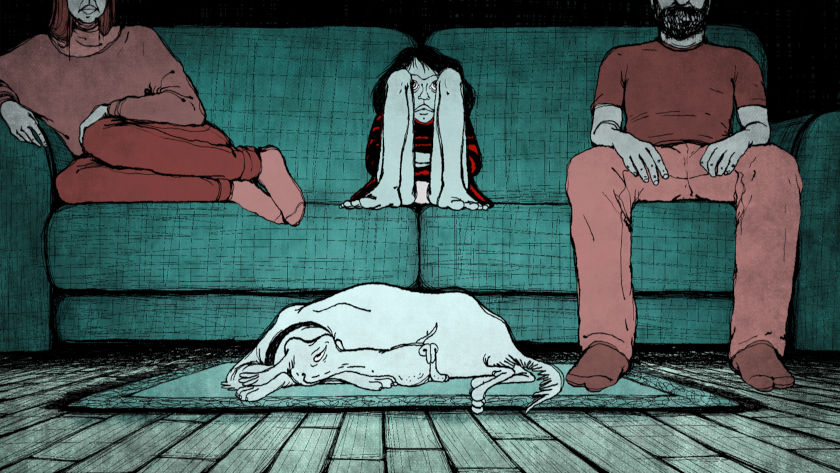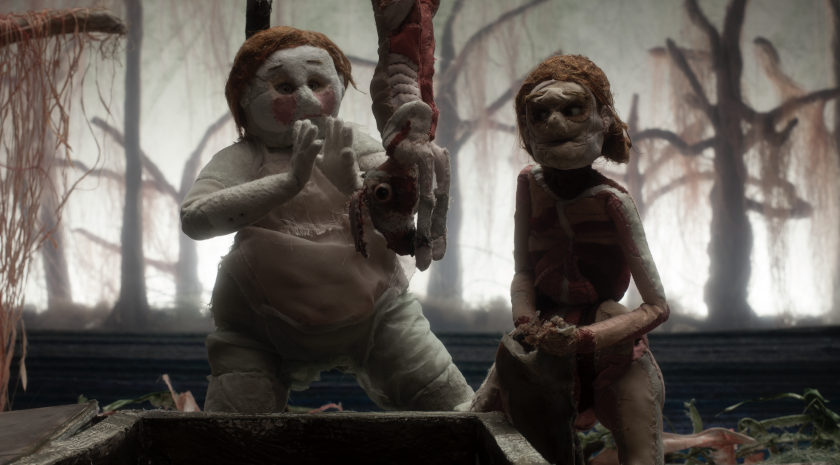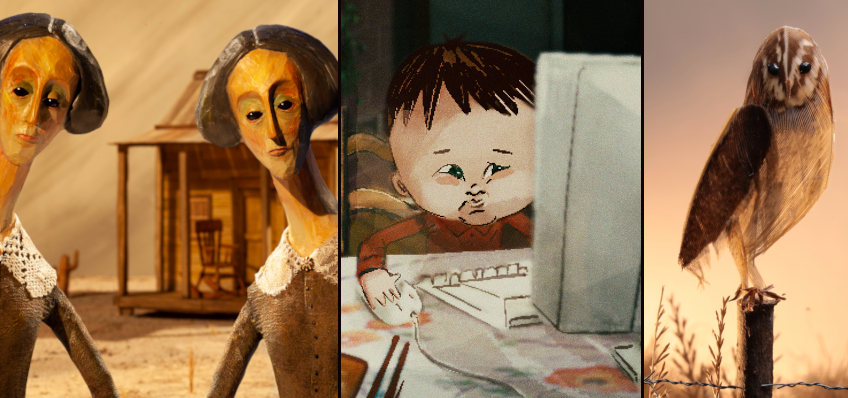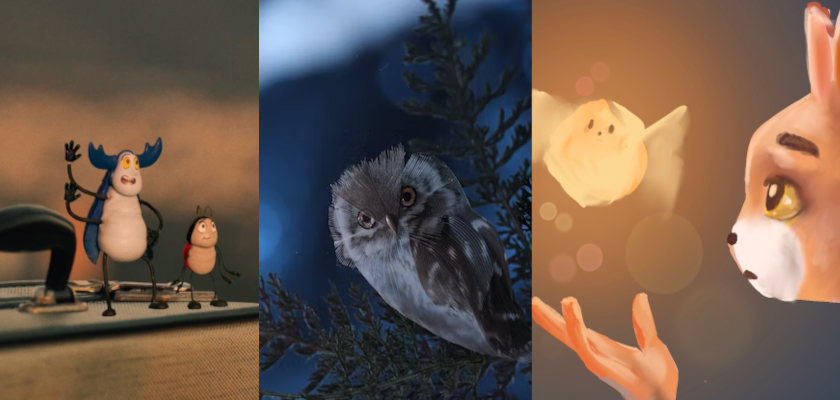A Lot of Energy, But It's Totally Worth It: Interview with Edwina Liard
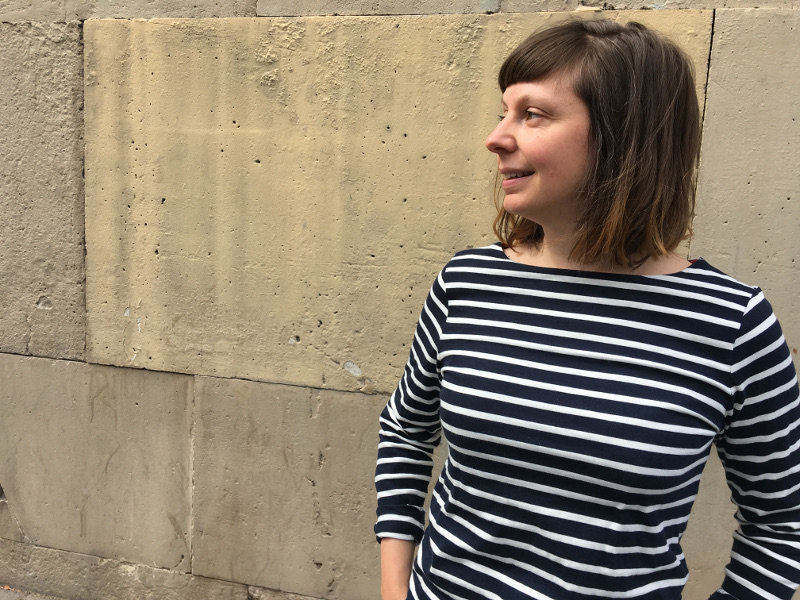
She's responsible (along with her partner Nidia Santiago) for bringing to life the juggernaut that was the stop-motion film Negative Space, which received (among other awards) an Academy Award nomination -it lost to Glen Keane and Kobe Bryant's Dear Basketball.
Still, Edwina Liard (of IKKI Films) runs, along with Nidia Santiago a small but daring French film production company, which started its animation slate with a 20-minute, 2D animation compelling film, Chulyen, A Crow's Tale (2015) by Cerise Lopez and Agnès Patron. The company's mandate " to make thrilling, intriguing projects. Whichever the form – fiction, documentary, short, feature" seemed to materialize from the beginning.
We met Edwina Liard during Animarkt Stop-Motion Form 2018 (Lodz, Poland), and she was happy to answer some questions; the interview was updated (July 2019) to include the company's new feature project, Piece by Alan Holly.
ZF: How did you start the company IKKI Films in 2011?
EL: My business partner, Nidia Santiago created IKKI Films in June 2011. I joined in November of the same year, and we've been working together since. It's been eight years. I studied in a business school, majored in cultural management, and I began to work in cinema by chance, just because it was cultural management really! I first worked in a French production company, Les Films du Belier, they produce shorts and features. I then went to Spain to learn Spanish and worked in a film festival there, the medium-length film festival La Cabina. Stayed there for two years; then I came back, because of the economic situation, and also because Nidia told me she wanted to create a production company, and I was like: OK, let's do that!
ZF: Τwo women were leading a film production company in France. Did you encounter any discrimination?
EL: This you can never know as you never live the situation as a man, you never know if there's a difference. Sometimes it seems that some people don't really take us seriously, but there are a lot of people that do and we produce films, pretty successful ones actually. And we produce shorts and now we're going to do feature films, and there isn't anything stopping us.
ZF: Did you ever have the need to actually have to prove yourself more than if you were a man?
EL: No, I don't have that feeling. Maybe it is, but I just don't feel that way. Sometimes there are very sexist people, but I'm not obliged to work with them.
ZF: How do you pick up your projects? Do they find you or do you select yourself the directors and artists?
EL:Every project that we produce, we have to like them - both of us, Nidia and I, so that's the first thing. It's the images, the story and the people that count, because we have to be passionate about the story, and we have to love the images and we have to trust the person - those three things. It's a kind of chemistry that creates itself sometimes. Our first animation project was Chulyen, which was crazy, 'cause it's a crazy film.
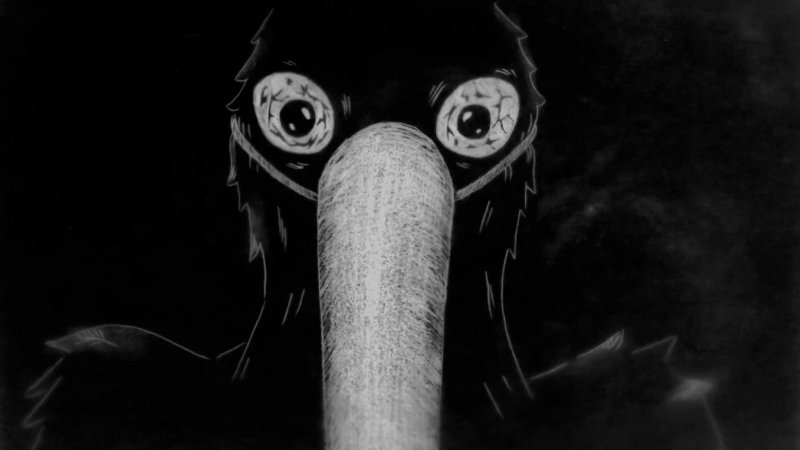
Chulyen, histoire de corbeau
ZF: It is a very daring film; how did you choose this for your first project?
EL: My business partner - in the company she previously worked - co-produced Oh Willy.... so she was known to have a first animation experience. Agnès and Cerise, directors of Chulyen, were two young female students, and wanted to work with young producers, I think in order to feel more comfortable to speak up, so a friend told them about Nidia and me. We met in Clermont-Ferrand and it just clicked. It was a real adventure, it was really nice.
ZF: Why did you say it was an adventure, which parts of this were the adventure? Financing?
EL: Yes, financing, it took time. We have the chance in France to be able to finance crazy projects.
ZF: What was the budget for Chulyen ?
EL: Somewhere in the range of 160,000 EUR. And we didn't have any idea of how much this type of animation will cost, because Cerise and Agnès had still to test the technique; so they spent time in the pre-production stage and tried different things, but didn't work on an animatic. At the end of the production, we had something like 45 minutes of animation, and this is nonsensical because the finished film is just 20 minutes.
ZF: It's still a long film but it doesn't feel that long.
EL: I think it's the right length; I do love this film, it's like our first baby! It gave us the kind of energy that made us feel that we could do anything.
ZF: Did the film receive funding from CNC?
EL:It received support from Ciclic - Région Centre-Val de Loire, Région Auvergne – it wasn't Auvergne-Rhone- Alpes at the time, just Auvergne – La Chaise-Dieu for the music. We had a TV channel (France 2); because of the TV channel support, we could ask for a bit of funding from CNC, but it was not a lot. And that's about it. Which is already really nice, the film was well funded.
ZF: How do you approach the lessons to be learned from the first production? How do you go on to the second, and even the third film?
EL: Have an animatic! Definitely have an animatic. You learn from every work, and we learnt a lot from this first experience. Now we know that it's better to devote more time during the development, it makes production much easier. All the more since in France we can get CNC fund for development; and there is the Open Workshop and a few residencies that you can apply to. It’s a chance we have in France to be able to have a truly professional approach of producing shorts. And yes, we really learned that, to be more prepared..
ZF: How do you compare the independent animation field in Europe in terms of financing?
EL: In France they just announced a few days ago [October 2018] that the CNC is gonna give more money to the animation feature films.
ZF: That's less money for shorts, right?
EL: No, they added money. They announced that they'll add 2.5 mil EUR. People are finally beginning to understand that animation is an artistic sector that does create work and is profitable. It's not just a few people making stuff in their own corner, it's bigger than this. People begin to take us more seriously..
ZF: How was the storyboard for Negative Space? How did it start?
EL: It was funny because the directors wanted to come and work in France. Ru Kuwahata is Japanese, and Max Porter is American, and they have been living and working in the United States for ten years together; they did all their independent short films there with their own money. They came to the Netherlands for a one-year residency, and they saw that in Europe, particularly in France, there were good technicians, and you could actually be paid to do an independent film.
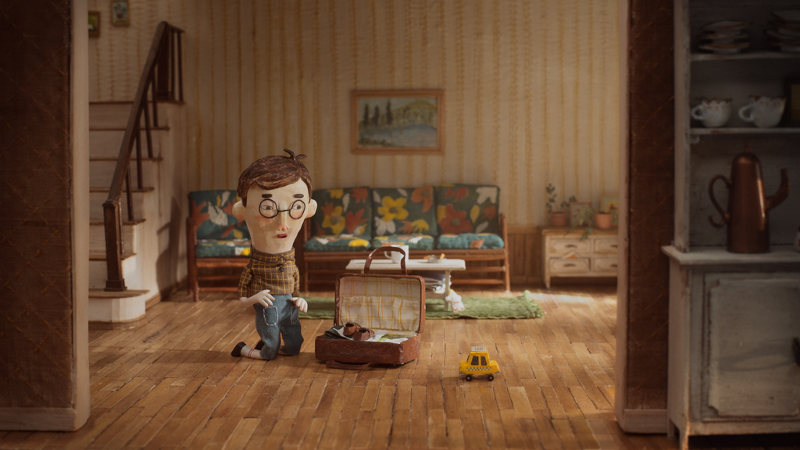 Negative Space
Negative Space
ZF: Yet the directors were not French.
EL: It's a 100% French film. It was funded in France, it was made in France, they came to France to live. They wanted to meet us and we wanted to meet them and we met in Clermont-Ferrand.
ZF: It is a nice example for people who are not French but they actually go to France to make films. Another production company might have said, let's work with a French director since we are based in France. This experiment was very interesting, though, for it actually shows that creative people travel and go places, and you are open to this.
EL: Yes, of course, and Ru and Max - they applied to this La Maison des Scenaristes and they have a pitching session in Clermont-Ferrand for shorts and in Cannes for feature films and they applied for the Clermont-Ferrand; that's why they came to Europe, to Clermont-Ferrand, with Negative Space. But we worked with Carlos Gomez Salamanca, a Colombian director, and he also came to France. It's kind of easy to do that – I mean, once you know it, there is a lot of paperwork. It interests us a lot. We don't have any platforms or it doesn't count the nationality for short films; for feature film is another story, but for short films we have all the freedom. It's the French production company that's important.
ZF: What would happen if somebody comes from another European country and tells you: I want to be a partner in a co-production, but it won't be fully financed in France. Are you open to that?
EL: . Yes, of course. Actually we are beginning a co-production with Denmark, then we are co-producing a project with Italy and with Ireland as well. It's kind of easy because if a French person goes to Denmark, for example, to work, this is a French expense; reversely, if a Dane comes to France, it's the same thing, as long as we pay them through the French system I mean. Europe is a really good environment for that and it's quite close, France is kind of in the middle.
ZF: Did you expect this success that Negative Space would have, including its Oscar nomination?
EL: No, not at all. It's true that it's talking about a really universal subject; Ru and Max’s other films also did travel a lot, so we knew that it could be a success, but we never imagined that it would be such a success. Since it also depends on which other their films are out each year, one can never know.
ZF: How do you plan your strategy, which distribution company you work with? You secure film distributors and just tell them: it's your film now and you do everything you want, or you have a little bit of feedback as well?
EL: No, we do have feedback. With Chulyen we did the distribution ourselves because we were a really young company, we just begun to pay ourselves at that time. So we began this work and then, when we could afford it, because it's so much work to distribute the film, we decided to work with a distributor. And we always have a dialogue. It's really important for us to know where the film is going, who sees it and how. And it's so nice to work with a distributor, it saves a lot of time and energy. Just for festivals for example, you don’t want to meet the same people if you’re a producer or a distributor.
ZF: What do you think of the distribution of short films in terms of festival distribution, VOD or other kinds of platforms? What do you think would be better for Negative Space?
EL: Negative Space is now online (and it was previously on VOD). It depends on where you sell it. For example, we had the chance for most of our films to get pre-sales from the French TV channel, so we just have to balance between the rights. But I think it's good that it's online and see-able.
ZF: What about this feature film, what are you planning to do? I remember you said something about doing a feature film.
EL: Yes, we’re co-producing Piece by Alan Holly, with the Irish studio and maps and plans, and CUB Animation in Hungary. Alan directed Coda, an animated short film that was shortlisted for the Oscars in 2015 and has had many viewers and received many prizes. He has a beautiful style, kind of picturesque, he gives life to digital 2D. And the story is strong, it’s about a group of teenagers realizing that their individual problems are less important than the collective problems surrounding them and in particular, climate change.
And so it is once again a question of images, story and people. I met with Carla Vulpiani, producer at and maps and plans, a few years back in Berlin, she put me in contact with Alan because I was looking for new Europeans partners. We met a few times in different festivals over the years, and we got along really well, that’s what brought us together on this particular project.
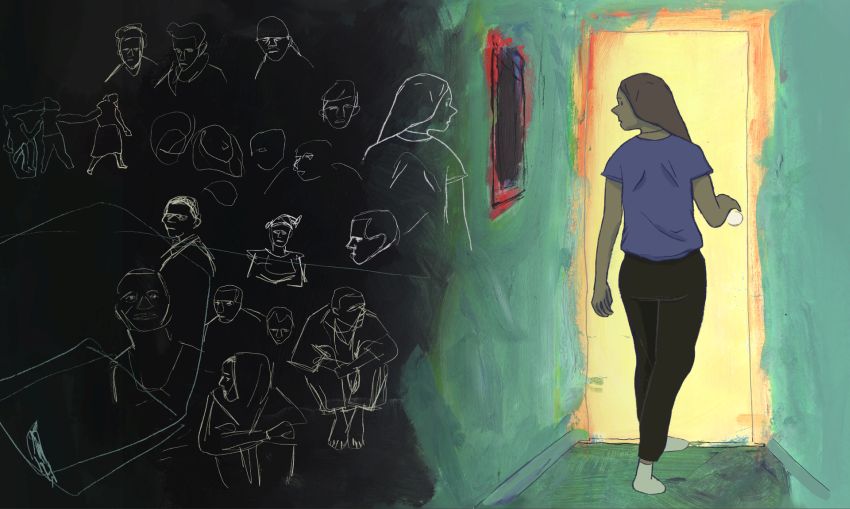
Piece
It will be a European co-production, we are looking for partners to embark on this project that won’t be easy to finance as it’s an adult animation feature, but we do believe we will succeed and make a wonderful film. The budget will change depending on the partners we find, mostly because there are a lot of salaries disparities
between countries.
ZF: So suppose now you're old – not old, but experienced, an experienced producer and there is a twenty-four year old girl that wants to come to the producer business. What would you advise her? Because you're Oscar-nominated and all...
EL: Well, I’d say it's all experience, you don’t need to make a special kind of studies to get there. You have to work a lot. Because it took us three years to begin to pay ourselves, so we were working on the side. It's a lot of energy but it's totally worth it, because you work on something you like. I'm so happy to see all the films we produced even now. I've seen them like 50 times, and I like that feeling that I helped this become real.
ZF: It's more than help, you actually produced this, it's different.
EL: To be a producer is a strange position to be in. You accompany artists along their journey, but you can never know what the film would have been if it were produced by someone else. But yes, you have to be dedicated, work as hell, and follow your instinct. If there is someone you don't want to work with, even if it's a big person in the industry, don't work with that person; if you feel it's not good it won't be good.
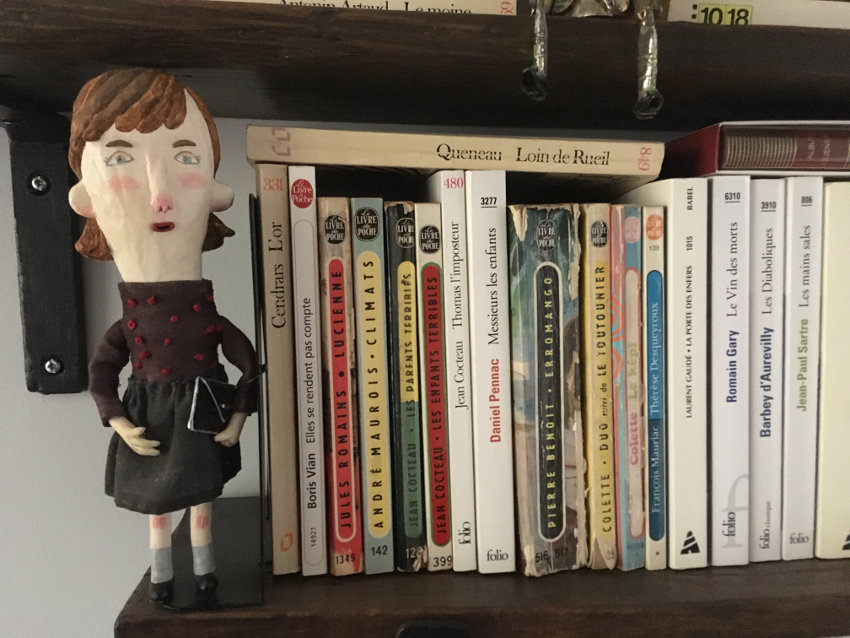
An Edwina Liard puppet, also present at Negative Space
The interview with Edwina Liard was first given to Vassilis Kroustallis during Animarkt Lodz 2018 Stop-Motion Forum for ZIppy Frames. It was later (June 2019) updated to reflect on current production plans.




